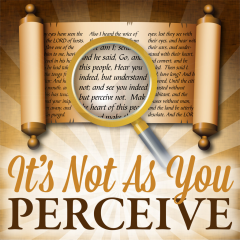- The Law is a curse and thus Christians are wise to avoid even the mention of keeping the Sabbath or any other law of Moses.
- The Law was nailed to the cross of Christ and thus it is not necessary for Christians to follow.
There is no doubt about it: fundamental Christianity as we know it today, especially here in the west is heavily, if not entirely, influenced by the writings of Paul. In fact, one could actually rename the Faith–Pauline Christianity (in(as opposed to Apostolic or Palestinian Christianity). But as we delve deeper in our inquiry into the true tenets of the Christian Faith, we often find one dichotomy of doctrine and truth after the next. Utilizing varying translations of the Bible, digging into the culture of the time in which the passages in question were written, reading extra-Biblical accounts of the historical events of the time in question, and simple meditation and prayer, one often gets conflicting interpretations into how the Christian Faith is suppose to be practiced and understood. One of the biggest, if not THE biggest dichotomy seems to be the Pauline Epistles, especially in the books of Galatians, Colossians and Ephesians.
So much weight is given to the writings of Paul that most Christian denominations hold Paul’s words in greater esteem than even the words of our Lord and Savior Yeshua. Granted one could argue that Paul received direct teaching and mentoring from Yeshua and thus his writings were clearly inspired. But if one reads passages from the above 3 epistles at face value (i.e., verbatim) without any consideration for the background or circumstances surrounding the writings, one could come away believing that Yahweh demands that woman should be silent in church; the law as given to Moses was a burden and a curse upon all of mankind (especially Israel) until the Messiah was crucified on the stake; that all food can be consumed without guilt of breaking food laws; that it’s okay to worship on Sunday as opposed to the Sabbath; and the like. But in all reasonableness, the Scriptures clearly uphold the Law or the Torah as holy, pure, a joy, Yahweh’s desire for men to honor and obey, and the benefits to be had when one lives the Torah is simply advantagous.
So how does one reconcile this conflict? Clearly the true Bible lover must recognize the inherent challenges that are the writings of Paul. The beloved Apostle Peter has stated as much quite eloquently in II Peter 3: 15, 16. Thus, when one actually employs sound Bible study examination techniques, one is likely to see that what is written word for word on the pages of one’s Bible may not be as the average Christian would perceive it to be. Be well.

Recent Comments